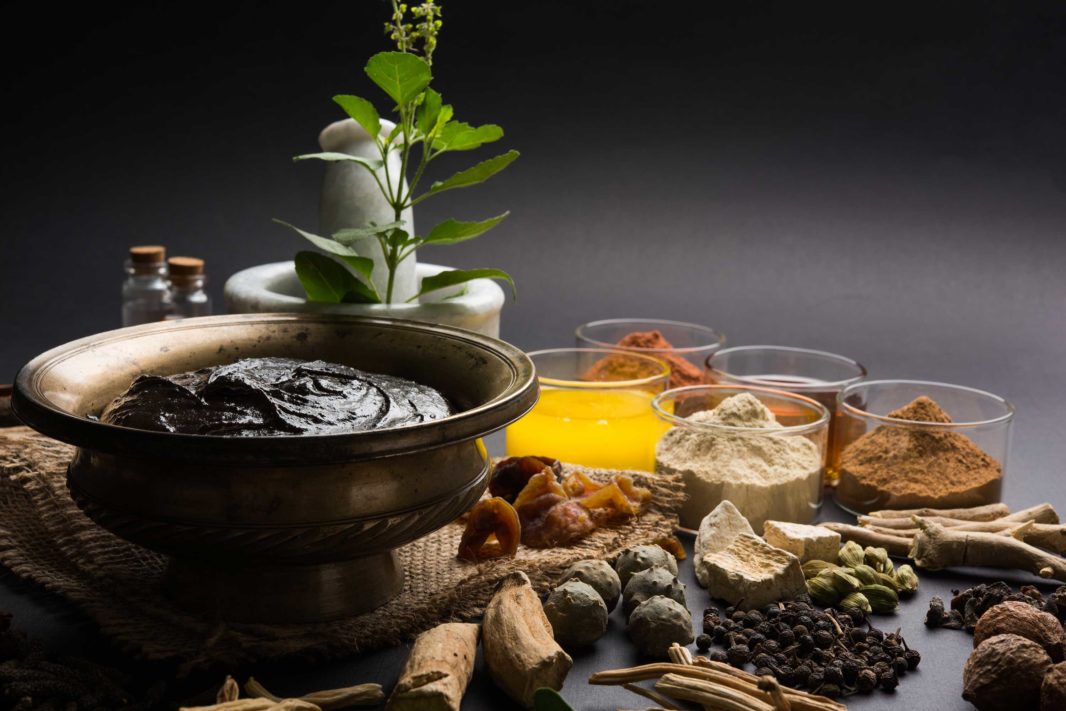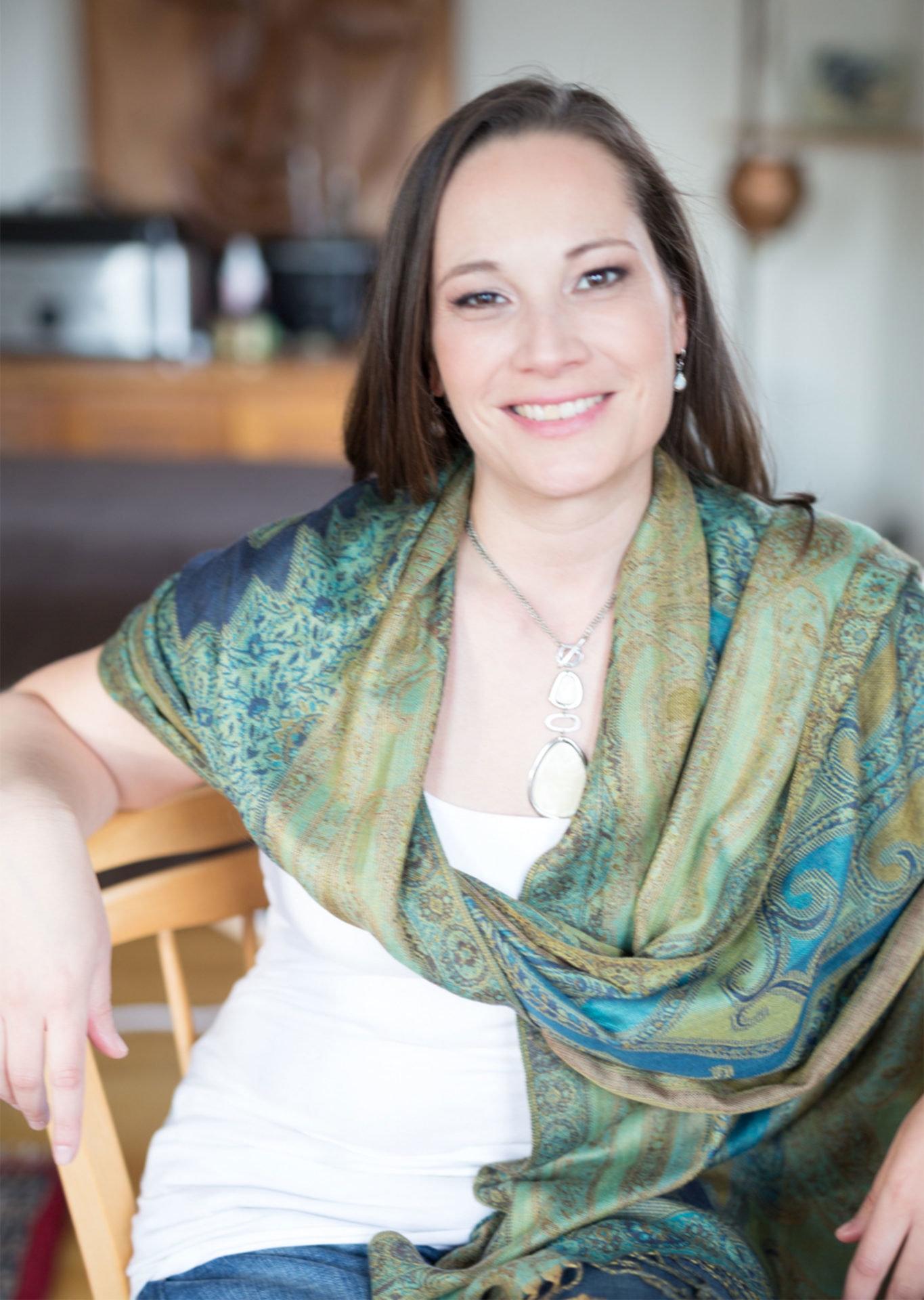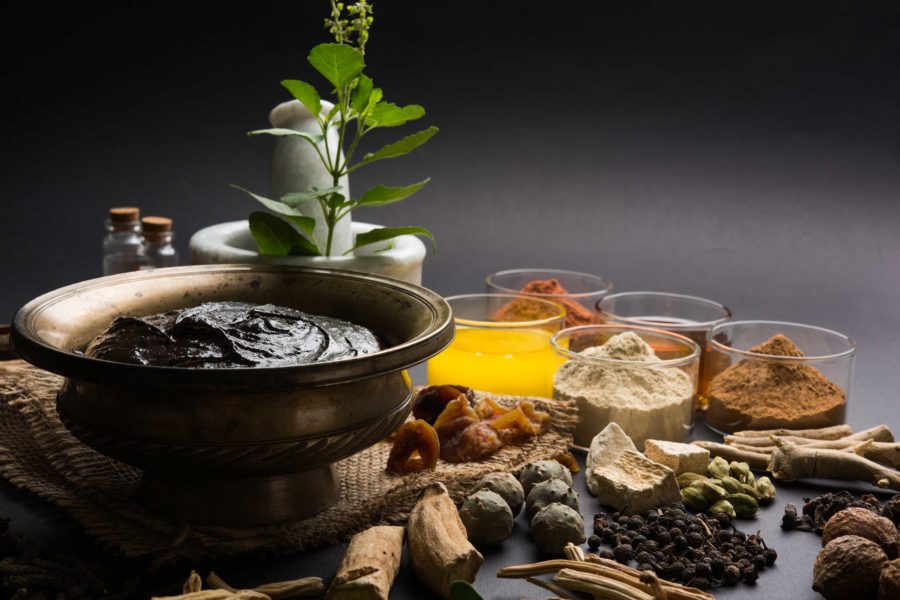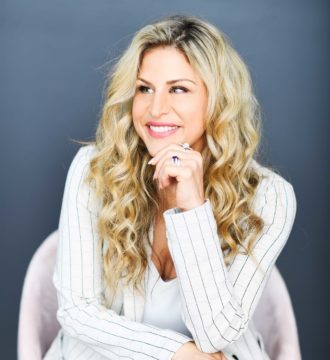
Spice up your life: Chyawanprash, an herbal jam referenced in ancient Ayurvedic texts, is believed to have several health benefits
The U.S. is experiencing an enlightenment period in health and wellness, with many Americans swapping fast food and Frappuccinos for farm-to-table dinners and fair-trade coffee. And instead of smoking cigarettes outside the club at 2 am, they’re lighting up aromatherapy diffusers for an evening yoga flow.

Photo: Maggie Hall Photography/courtesy of Kris Quinones
Alternative approach: Kris Quinones is a certified Ayurvedic practitioner and the owner of Rasayana in Somerville
Although such practices might sound like a new trend, they’re actually derivative of Ayurveda, a 5,000-year-old holistic health system created by Indian sages that’s based on observations of the mind and body connection.
And according to Ayurvedic specialist Kris Quinones, owner of holistic practice Rasayana in Somerville, anyone can integrate the ancient health system into their modern-day lifestyle, even in a fast-paced and hyper-stimulating urban environment such as Boston.
“Ayurveda is not an extreme science; It’s accommodating and it’s not going to tell you to do this or that; it’s about choice,” she tells Exhale. “It allows you to practice healthy living based on the laws of nature itself.”
As Quinones and other Ayurvedic practitioners will say, Ayurveda is not a fad or a quick fix for every health problem. It requires discipline and lifestyle adjustments but not a drastic change all at once. In fact, it is thought that incorporating Ayurvedic strategies slowly can result in monumental change.
Practicing Ayurveda means being intentional about what you eat and how you eat it, and when you sleep and what you do when you first wake up. Explains Quinones, “[It’s] how you would manage your energy on a daily basis to best support your unique makeup and be able to unlock your body’s own intelligence to heal itself.”

Photo: Cameron Ciccone/courtesy of Lauran Massalas
The right stuff: Local practitioner Lauren Massalas helps clients clean up their diet using basic Ayurvedic health tenets
In essence, she adds, “It entails recognizing your own habits that are making it harder for your body to do what it’s designed to do.”
A lot of the habits that are at odds with Ayurveda are part of living the modern city life and being entrenched in American culture: eating dinner late, seeking external validation through social media, and binge-watching television.
“In some ways, Ayurveda is counter culture,” Lauren Massalas, a yoga teacher and an Ayurvedic practitioner from Massachusetts, tells Exhale. “Think of the modern health problems: stress, mental health, heart disease, Alzheimer’s, cancer, autoimmune disorders, infertility. Diet and lifestyle can have a role in preventing these diseases.”
Massalas, who is also a part-time ICU nurse in the cardiac unit at Massachusetts General Hospital, says that following an Ayurvedic morning routine has helped minimize any negative effects associated with working 12-hour shifts in a highly stressful environment.
I felt 1,000 percent more alive and ready to do my job. Learning about Ayurveda was the biggest eye-opener, especially how our daily routines should more closely mimic the natural circadian rhythm. —Lauren Massalas

Photo: Cameron Ciccone/courtesy of Lauren Massalas
Balancing act: Massalas decompresses from her part-time job as an ICU nurse with Ayurveda
Though she used to hit the snooze button multiple times before rolling out of bed and then heading straight to the hospital, she now preps for the day by waking up between 5 am and 6 am, drinking a cup of hot water, meditating, and stretching.
“I felt 1,000 percent more alive and ready to do my job,” she says. “Learning about Ayurveda was the biggest eye-opener, especially how our daily routines should more closely mimic the natural circadian rhythm.”
Understanding how our bodies are connected to the world around us is one of the main practices of Ayurveda. “Even beyond the nourishment on our plate, we have to rethink the nourishment we take in other ways,” says Quinones. “For some people, it’s a big step to stop watching TV at 9 pm and go to bed earlier, and that might be what their Ayurvedic practice looks like.”
Like Massalas, Quinones has a background in health care and has been a licensed massage therapist since 2007. She studied biology and pre-med in college, then worked in orthopedics and sports medicine after graduating. When she did not get accepted into medical school, Quinones focused her body-healing work on massage therapy while also practicing yoga.
“Yoga got to our shores in the late ‘70s, and as Americans started to dive in and explore how to care for themselves in a different way, yoga has enjoyed this global acceptance,” she says.
“It was the litmus test for the second wave of Vedic science [a modern term to describe ancient science found in early Indian scriptures], which is Ayurveda. Because of the climate now, where we have a yoga studio on every corner, people are familiar with it and are diving in more deeply,” says Quinones, who received her Ayurveda certification at the Kripalu School of Ayurveda in Stockbridge.
At Rasayana, Quinones offers services such as Abhyanga—a traditional Ayurvedic massage with herbal oils and specific pressures and rhythms—as well as Shirodhara, a technique involving hand-pouring medicated herbal oils from a copper vessel to the brow space just above and between the eyes.
Beyond Ayurvedic treatments, Quinones also conducts long-term programs with clients who are interested in fully embracing Ayurveda as a lifestyle.
One of the best things I’ve learned from Ayurveda is that city life can be overstimulating and when life gets complicated, keep it simple with a few moments of silence every day or a cup of hot water in the morning. —Lauren Massalas
Massalas, who also received her Ayurveda certification from Kripalu, offers a host of services for clients, from consulting with individuals seeking help for skin conditions, infertility, and hormone-related issues to providing individualized Ayurvedic cooking lessons, pantry assessments, breath and yoga techniques, and solutions for healthy habit formation.
“One of the best things I’ve learned from Ayurveda is that city life can be overstimulating, and when life gets complicated, keep it simple with a few moments of silence every day or a cup of hot water in the morning,” advises Massalas.
“People are declaring a better life for themselves. One of the things that appeals to people about Ayurveda is that it allows you to work from wherever you’re starting from,” says Quinones. “You don’t have to be vegetarian or Buddhist. Anyone can practice it if they are consistent and open to it.”
Additional Local Resources on Ayurveda
The Everyday Ayurveda Cookbook: A Seasonal Guide to Eating and Living Well
By Kate O’Donnell
Boston-based practitioner Kate O’Donnell specializes in Ayurvedic education, cleansing programs, and cooking skills outlined in her 2015 book. Heal your gut, balance your body, and eat seasonal foods with O’Donnell’s easy to understand Ayurvedic cooking advice. Also check out her second recipe book published in March, Everyday Ayurveda Cooking for a Calm, Clear Mind: 100 Simple Sattvic Recipes.
Kripalu, a nonprofit educational organization located in Stockbridge, has a wide berth of yoga and Ayurvedic resources, including a podcast hosted by various yoga teachers and holistic specialists. The show features topics such as overcoming trauma, yoga for athletes, and interviews with influential spiritual leaders like Deepak Chopra.
Boston Center for Contemplative Practice
796 Beacon St., Newton Centre
This open space offers (often low-priced) community events and workshops to the public. Various meditation groups meet here on a weekly basis, and yoga classes and mindfulness courses are held here as well.
Inner Space Meditation Center
1110 Massachusetts Ave., Cambridge
The center doubles as an art gallery and provides free, guided meditations and talks with yoga and meditation experts. The space is run by volunteers and is sponsored by the Brahma Kumaris, an international organization focused on spreading spiritual awakening.
Seven Stars Bookshop
731 Massachusetts Ave., Cambridge
Locally run bookshop Seven Stars has its shelves lined with books on metaphysics, Eastern philosophy, and New Age topics. Customers can peruse a mix of new and used books, including mainstream titles, and browse the extensive collection of crystals and minerals.



 6 min read
6 min read




